Related Products & Systems on Other Pages on This Website
GAO RFID Counselling & Psychotherapy Clinics Asset Management System
People Tracking System for Education & Healthcare Institutions
Residential Care Facilities RFID Tracking Systems – GAO (gaorfid.com)
Employee Access Control | Office Access Control (gaorfid.com)
BLE | Bluetooth Low Energy | BLE Gateways & Beacons – GAO RFID
RFID Readers | Buy RFID Readers | RFID Reader Writers – GAO RFID
RFID Tags | Buy RFID Tags – GAO RFID
Tamper Proof RFID Tags | Security RFID Tags – GAO RFID
Printable RFID Tags | Printable RFID Labels – GAO RFID
Medical Use RFID Tags | GAO RFID Inc.
On Metal RFID Tags – All Types
Overview
The home healthcare equipment manufacturing industry is a sector of the healthcare industry that produces medical equipment and devices designed for use in the home setting. This includes items such as mobility aids, respiratory equipment, and monitoring systems, among others. The industry is driven by an aging population, rising healthcare costs, and the desire for patients to receive care in the comfort of their own homes. It is expected to grow significantly in the coming years, fueled by increasing demand and advancements in technology
GAO’s RFID, BLE, IoT, and drone technologies have helped its customers in the home healthcare equipment manufacturing industry to improve their work processes, their operations and productivity by better management of their staff, materials and operational equipment such as wheelchairs, walkers, oxygen concentrators, nebulizers, transfer boards, feeding pumps, feeding tubes, glucose meters, thermometers.
Ranked as a top 10 global RFID supplier and based in New York City and Toronto, GAO RFID Inc offers a wide choice of RFID (radio frequency identification) readers and tags at ultra high frequency (UHF), high frequency (HF, including NFC) and low frequency (LF), BLE (Low Energy Bluetooth) gateways and beacons, and various RFID and BLE systems such as people tracking, asset tracking, access control, parking control, fleet management, WIP (work in progress), traceability. Such RFID and BLE products and systems, together with its IoT and drone technologies, have been widely used in the home healthcare equipment manufacturing industry.
Applications & Benefits of GAO’s RFID, BLE, IoT & Drones for the Home Healthcare Equipment Manufacturing
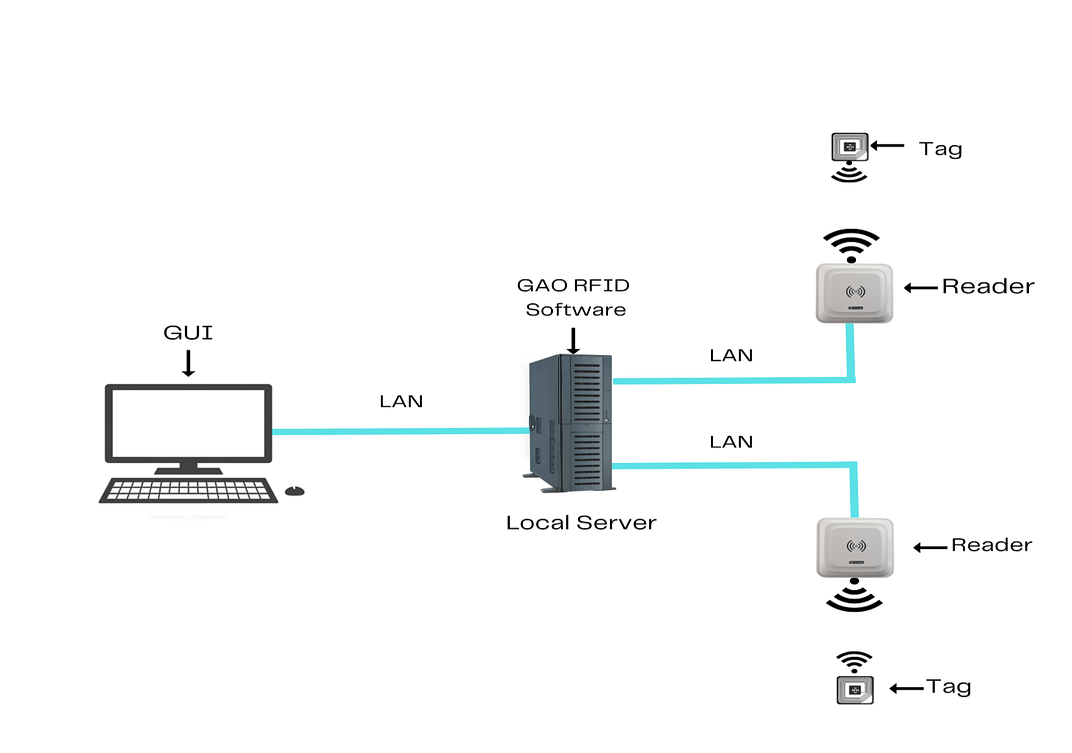 To satisfy its customers, GAO’s RFID or RFID Systems for the home healthcare equipment manufacturing industry are offered in 2 versions. One version is that its software is running on a local server, and another version is that its software runs in the cloud. The above illustrates GAO system for the home healthcare equipment manufacturing industry with its software running on a local server.
To satisfy its customers, GAO’s RFID or RFID Systems for the home healthcare equipment manufacturing industry are offered in 2 versions. One version is that its software is running on a local server, and another version is that its software runs in the cloud. The above illustrates GAO system for the home healthcare equipment manufacturing industry with its software running on a local server.
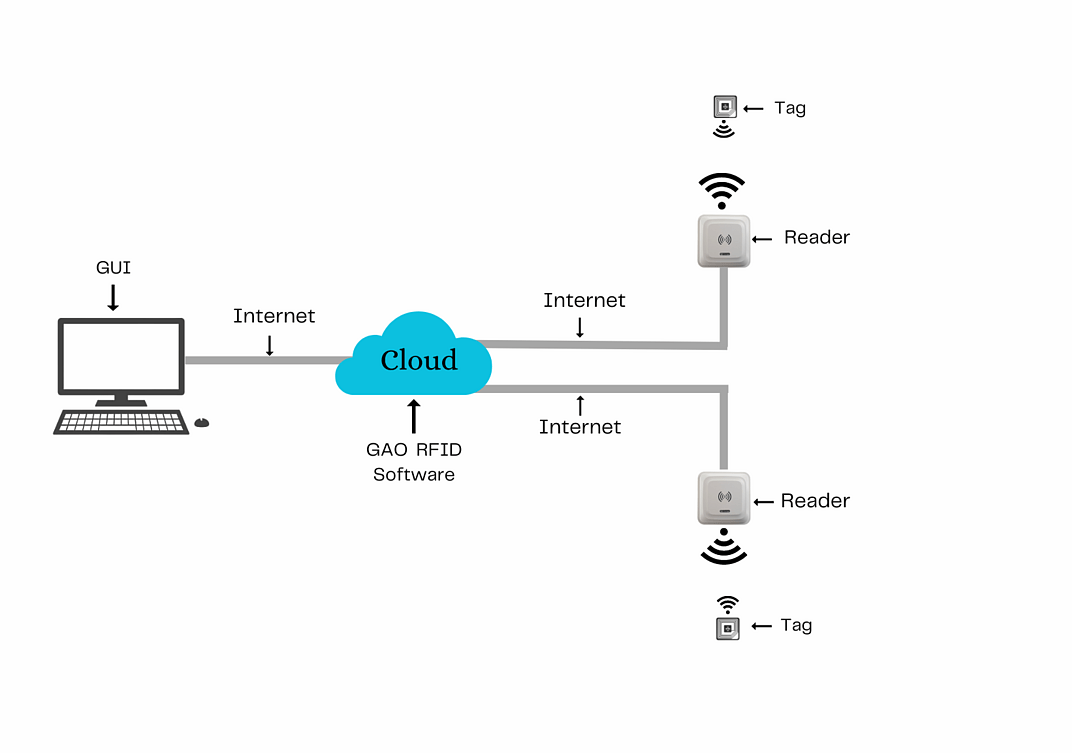 The above illustrates GAO system for the home healthcare equipment manufacturing industry with its software running in cloud.
The above illustrates GAO system for the home healthcare equipment manufacturing industry with its software running in cloud.
GAO’s RFID technologies bring the many benefits to the home healthcare equipment manufacturing industry:
- Inventory Management: GAO’s RFID tags can be attached to equipment, allowing for real-time tracking of inventory levels and locations. This can help reduce the risk of equipment being lost or stolen, and improve the efficiency of inventory management.
- Asset tracking: Our RFID tags can also be used to track the movement of equipment throughout a facility or between facilities. This can help prevent equipment from being misplaced, and enable faster and more accurate location of needed equipment.
- Improved maintenance: GAO’s RFID tags can be used to track equipment maintenance schedules and history, enabling proactive maintenance and reducing downtime due to equipment failure.
- Enhanced safety: Our RFID tags can be used to track the movement of patients and equipment, helping to ensure that patients receive the care they need and that equipment is used safely and appropriately.
- Reduced costs: GAO’s RFID technology can help reduce costs associated with lost or stolen equipment, inefficiencies in inventory management, and maintenance and repair costs due to equipment failure.
GAO’s BLE technologies offer longer reading range and particularly attractive for applications with larger work spaces within the home healthcare equipment manufacturing industry:
- Remote monitoring: GAO’s BLE-enabled medical devices can transmit patient data to healthcare providers or caregivers, enabling remote monitoring of patients health and conditions.
- Improved patient outcomes: Our Real-time monitoring of patient health can enable healthcare providers to detect and address issues earlier, potentially leading to improved patient outcomes.
- Increased patient independence: GAO’s BLE-enabled medical devices can help patients manage their health at home, reducing the need for hospital or clinic visits and increasing patient independence.
- Enhanced safety: Our BLE technology can be used to track the location of patients and equipment, enabling healthcare providers to respond quickly in the event of an emergency.
- Improved medication adherence: GAO’s BLE-enabled medication dispensers can remind patients to take their medication and track medication usage, helping to improve medication adherence and reduce the risk of adverse events.
GAO’s RFID and drone technologies are often combined and such solutions offer the following benefits to the home healthcare equipment manufacturing industry:
- Faster delivery: GAO RFID tags on equipment can help drones locate and retrieve equipment quickly, enabling faster delivery to patients.
- Improved asset tracking: Our RFID tags on equipment can help drones locate and retrieve equipment more accurately, reducing the risk of misplaced or lost equipment.
- Increased safety: Drones can be used to transport equipment and supplies to remote or hard-to-reach locations, reducing the need for healthcare providers or patients to travel and increasing safety.
- Reduced costs: Drones can enable more efficient and cost-effective delivery of equipment and supplies, reducing the costs of traditional transportation methods.
- Real-time inventory management: GAO’s RFID technology can enable real-time tracking of inventory levels and locations, allowing for more efficient inventory management
Here are benefits of GAO’s IoT technologies to the home healthcare equipment manufacturing industry:
- Remote monitoring: GAO’s IoT-enabled medical devices can transmit patient data to healthcare providers or caregivers, enabling remote monitoring of patients’ health conditions
- Improved patient outcomes: Real-time monitoring of patient health can enable healthcare providers to detect and address issues earlier, potentially leading to improved patient outcomes.
- Increased patient independence: GAO’s IoT-enabled medical devices can help patients manage their health at home, reducing the need for hospital or clinic visits and increasing patient independence.
- Enhanced safety: GAO’s IoT technology can be used to track the location of patients and equipment, enabling healthcare providers to respond quickly in the event of an emergency.
- Improved medication adherence: GAO’s IoT-enabled medication dispensers can remind patients to take their medication and track medication usage.
GAO Helps Customers Comply with Standards, Mandates & Regulations of the Home Healthcare Equipment Manufacturing
GAO RFID Inc. has helped many companies in the home healthcare equipment manufacturing industry to deploy RFID, BLE, IoT and drone systems and to ensure such deployments complying with the applicable industry standards, mandates and government regulations:
RFID, BLE, IoT, & Drone Standards & Mandates
- MQTT (Message Queuing Telemetry Transport): This is a lightweight publish/subscribe messaging protocol that is often used in IoT applications, including healthcare. It enables real-time data exchange between devices and applications.
- CoAP (Constrained Application Protocol): This is a lightweight application layer protocol that is designed for use in constrained environments, such as IoT devices with limited resources. It is often used in healthcare applications for device-to-device communication.
- ASTM F38-16: Standard Specification for Emergency Medical Services (EMS) Air Ambulance.
- ASTM F2990-14: Standard Practice for UAV Flight Training.
- FDA Unique Device Identification (UDI) system: This regulation requires medical devices to have a unique identifier that can be tracked throughout the supply chain, including in home healthcare settings. RFID technology can be used to facilitate this tracking.
- ISO 13485: This is a standard for quality management in medical device manufacturing. It requires manufacturers to have a system in place for identifying and tracking their products, which can be facilitated by RFID technology.
- FDA Unique Device Identification (UDI) system: This regulation requires medical devices to have a unique identifier that can be tracked throughout the supply chain, including in home healthcare settings. Wireless communication technology such as BLE can be used to facilitate this tracking.
- HIPAA (Health Insurance Portability and Accountability Act): This regulation governs the privacy and security of patient health information. If BLE is used to transmit patient data, it must comply with HIPAA regulations.
- Federal Aviation Administration (FAA) regulations: Drones used in healthcare settings must comply with FAA regulations, including those related to commercial drone operations and airspace restrictions.
- HIPAA (Health Insurance Portability and Accountability Act): This regulation governs the privacy and security of patient health information. If drones are used to transport medical equipment or supplies that contain patient information, they must comply with HIPAA regulations.
US. Government Regulations
- FDA (Food and Drug Administration): The FDA regulates medical devices, including those used in home healthcare settings. Manufacturers must obtain FDA approval or clearance before marketing their devices.
- HIPAA (Health Insurance Portability and Accountability Act): HIPAA regulations govern the privacy and security of patient health information, including in home healthcare settings.
- OSHA (Occupational Safety and Health Administration): OSHA regulates workplace safety, including in home healthcare settings. Employers must provide a safe and healthy work environment for their employees.
- Medicare and Medicaid: These government programs provide healthcare coverage to eligible individuals, including home healthcare services. Providers must comply with program regulations in order to receive reimbursement.
- ADA (Americans with Disabilities Act): The ADA prohibits discrimination based on disability, including in the provision of healthcare services. Home healthcare providers must comply with the ADA’s requirements for accessibility and accommodation.
Canadian Government Regulations
- Health Canada: Health Canada regulates medical devices, including those used in home healthcare settings. Manufacturers must obtain Health Canada approval or clearance before marketing their devices.
- PIPEDA (Personal Information Protection and Electronic Documents Act): PIPEDA governs the collection, use, and disclosure of personal information by private sector organizations, including those that provide home healthcare services.
- Employment Standards: Employment standards regulations govern the working conditions of employees, including those who work in home healthcare settings.
- Canada Health Act: The Canada Health Act provides for the administration and funding of health services, including home healthcare services.
- Accessibility for Ontarians with Disabilities Act: The Accessibility for Ontarians with Disabilities Act (AODA) sets out requirements for accessibility in Ontario, including in the provision of healthcare services. Other provinces may have similar legislation.
- WSIB (Workplace Safety and Insurance Board): The WSIB provides workplace injury and illness insurance coverage for workers in Ontario, including those who work in home healthcare settings.
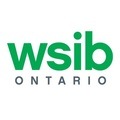 Workplace Safety and Insurance Board
Workplace Safety and Insurance Board
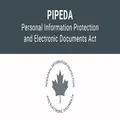 Personal Information Protection and Electronic Documents Act
Personal Information Protection and Electronic Documents Act
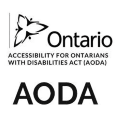 Accessibility for Ontarians with Disability Act
Accessibility for Ontarians with Disability Act
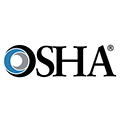 Occupational Safety and Health Administration
Occupational Safety and Health Administration
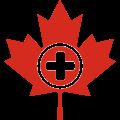 Health Canada
Health Canada
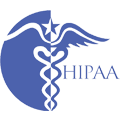 Health Insurance Portability and Accountability act
Health Insurance Portability and Accountability act
 Environmental Protection Agency
Environmental Protection Agency
 Food and Drug Administration
Food and Drug Administration
 Center for Medicare & Medicaid service
Center for Medicare & Medicaid service
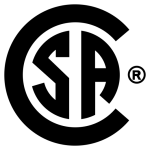 Canadian Standards Association
Canadian Standards Association
 Federal Aviation Administration
Federal Aviation Administration
 Americans with Disabilities Act
Americans with Disabilities Act
GAO Software Provides Easy Integration with API
GAO’s RFID and BLE software offers a free trial for both the server-based and cloud versions, and offers an API to the important systems in the home healthcare equipment manufacturing industry such as:
Personnel Management:
- Scheduling and managing home healthcare workers
- Managing training and certification for home healthcare workers
- Tracking employee time and attendance
- Managing payroll and benefits for home healthcare workers
Equipment Management:
- Tracking the location and status of home healthcare equipment using RFID or other tracking technologies
- Monitoring the condition and maintenance needs of home healthcare equipment
- Managing equipment repair and replacement
- Monitoring and managing equipment inventory levels
Access Control:
- Monitoring and controlling access to patient homes and healthcare facilities
- Managing visitor access to patient homes and healthcare facilities
- Controlling access to equipment storage areas and supply rooms
Warehouse Management:
- Inventory management
- Order processing and fulfillment
- Shipping and receiving
- Quality control
- Pick and pack operations
- Barcode scanning and tracking
Supply Chain Management:
- Supplier management
- Procurement and purchasing
- Materials management
- Demand planning and forecasting
- Transportation and logistics
- Customs and regulatory compliance
GAO has enabled its customers to make use of some of leading software and cloud services in the home healthcare equipment manufacturing industry industry. Below are some of popular software and cloud services in the home healthcare equipment manufacturing industry industry.
- ADP Workforce Now – ADP Workforce Now is a popular cloud-based human resources management platform that includes features for employee management, payroll, time and attendance, and more. It can also be customized to include asset management features for tracking equipment.
- BambooHR – BambooHR is a cloud-based human resources management platform that includes features for employee onboarding, performance management, and more. It can also be customized to include asset management features for tracking equipment.
- Oracle HCM Cloud – Oracle HCM Cloud is a cloud-based human resources management platform that includes features for employee management, payroll, time and labor management, and more. It also offers asset management features for tracking equipment.
- SAP SuccessFactors – SAP SuccessFactors is a cloud-based human capital management platform that includes features for recruiting, onboarding, performance management, and more. It also offers asset management features for tracking equipment.
- SAP Extended Warehouse Management – SAP Extended Warehouse Management (SAP EWM) is a leading warehouse management software that provides real-time visibility and control over warehouse operations, including inventory management, order fulfillment, and shipping.
- JDA Warehouse Management – JDA Warehouse Management is a comprehensive warehouse management software that offers real-time visibility into inventory and order status, optimized warehouse operations, and improved supply chain efficiency.
- Acctivate – Acctivate is a popular inventory management software designed for small to medium-sized businesses. It includes features for inventory tracking, purchasing, order management, and reporting.
- Microsoft Dynamics 365 – Microsoft Dynamics 365 is an all-in-one business management solution that includes features for inventory management, sales and marketing, finance, and more. It can be customized to meet the needs of the home healthcare equipment manufacturing industry.
- Amazon Web Services (AWS) – AWS is a cloud computing platform that provides a wide range of services for computing, storage, databases, analytics, machine learning, and more.
- Google Cloud Platform (GCP) – GCP is a cloud computing platform that provides a wide range of services for computing, storage, databases, machine learning, and more.
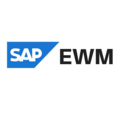 SAP Extended Warehouse management
SAP Extended Warehouse management
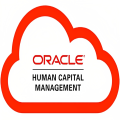 Oracle Human Capital Management
Oracle Human Capital Management
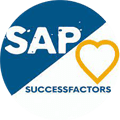 SAP SuccessFactors
SAP SuccessFactors
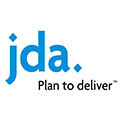 JDA
JDA
 Google cloud
Google cloud
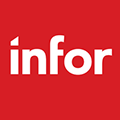 Infor
Infor
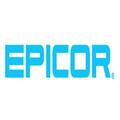 Epicor
Epicor
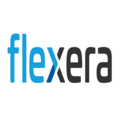 Flexera
Flexera
 Automatic Data Processing, Inc
Automatic Data Processing, Inc
 BambooHr
BambooHr
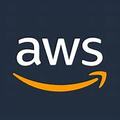 Amazon Web Services
Amazon Web Services
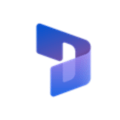 Microsoft Dynamics
Microsoft Dynamics
GAO has worked with some of the leading technology companies in the home healthcare equipment manufacturing industry in to provide integrated its RFID, BLE, IoT and drone solutions to customers. Here are some of the technology leaders in the home healthcare equipment manufacturing industry:
- Philips Healthcare – Philips Healthcare offers a wide range of medical equipment and healthcare IT solutions, including telehealth, patient monitoring, and diagnostic imaging.
- Siemens Healthineers – Siemens Healthineers provides medical devices, services, and digital solutions, including imaging and diagnostic equipment, laboratory diagnostics, and enterprise imaging solutions.
- Qualcomm Life – Qualcomm Life offers a range of medical device connectivity solutions that enable data collection, management, and sharing for remote patient monitoring and clinical trials.
- Intel Corporation – Intel Corporation provides a range of hardware and software solutions for the healthcare industry, including medical imaging, electronic health records, and remote patient monitoring.
- Cerner Corporation – Cerner Corporation is a leading provider of electronic health records (EHRs) and clinical information systems for the healthcare industry.
- McKesson Corporation – McKesson Corporation is a healthcare services and information technology company that provides a range of solutions and services for the healthcare industry, including EHRs, medical imaging, and medication management.
- Allscripts Healthcare Solutions – Allscripts Healthcare Solutions provides electronic health records and practice management solutions that help healthcare providers to improve patient outcomes and clinical workflows.
- NextGen Healthcare – NextGen Healthcare provides healthcare information technology solutions that enable healthcare providers to optimize clinical workflows, improve patient outcomes, and streamline revenue cycle management.
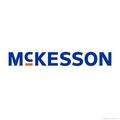 MCKESSON
MCKESSON
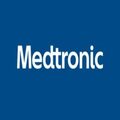 Medtronic
Medtronic
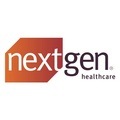 Nextgen Healthcare
Nextgen Healthcare
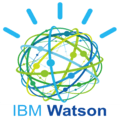 IBM Watson Health
IBM Watson Health
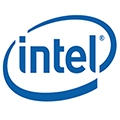 Intel
Intel
 Allscripts Health Care Solution
Allscripts Health Care Solution
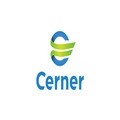 Cerner corporation
Cerner corporation
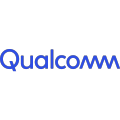 QualcommLife
QualcommLife
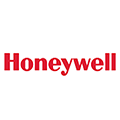 Honeywell
Honeywell
 PHILIPS Healthcare
PHILIPS Healthcare
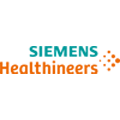 SIEMENS Healthineers
SIEMENS Healthineers
 GE Healthcare
GE Healthcare
Case Studies of RFID Applications
Below are three RFID application cases in the home healthcare equipment manufacturing industry:
RFID application in the home healthcare equipment manufacturing industry is the use of RFID technology to track and manage inventory of medical equipment in hospitals and healthcare facilities. For example, RFID tags can be placed on medical equipment such as wheelchairs, hospital beds, and infusion pumps. These tags can be read by RFID readers placed at strategic locations throughout the facility, allowing staff to easily track the location and usage of the equipment. This system can improve efficiency and reduce costs by reducing the need for manual inventory management and reducing the incidence of lost or misplaced equipment. Additionally, RFID technology can help ensure that equipment is properly cleaned and maintained, reducing the risk of healthcare-associated infections. One example of a company offering RFID solutions for healthcare equipment management is Terso Solutions. They offer a range of RFID-enabled storage cabinets and refrigerators designed specifically for healthcare facilities, as well as software solutions to help manage inventory and automate replenishment.
Another, RFID application in the home healthcare equipment manufacturing industry is the use of RFID technology in medical equipment maintenance and servicing. RFID tags can be attached to medical equipment such as infusion pumps, ventilators, and patient monitors. The tags can store information about the equipment, such as the serial number, maintenance schedule, and service history. When the equipment is serviced, technicians can use handheld RFID readers to quickly and easily access the equipment’s service history and maintenance schedule. This can help ensure that equipment is properly maintained and serviced, reducing the risk of equipment failure and improving patient safety. One example of a company offering RFID solutions for medical equipment maintenance is Kit Check. They offer a system that uses RFID technology to track and manage medication and medical equipment in hospitals and other healthcare facilities. The system includes RFID tags that can be attached to medical equipment and medication, as well as RFID readers and software to manage the inventory and track usage. The system can also be integrated with existing hospital information systems, making it easy to incorporate into existing workflows.
UHF RFID application in the home healthcare equipment manufacturing industry is the use of UHF RFID technology to track and manage medical supplies and equipment within hospitals and other healthcare facilities. UHF RFID tags can be attached to medical equipment, such as hospital beds and wheelchairs, as well as to medical supplies, such as bandages, syringes, and medication. Using UHF RFID readers and antennas installed in key locations, healthcare facilities can track the location and movement of equipment and supplies throughout the facility in real-time. This can help staff quickly locate needed equipment and supplies, reducing wait times for patients and improving patient care. One example of a company offering UHF RFID solutions for healthcare equipment and supply management is Impinj. They offer a range of UHF RFID readers, antennas, and software solutions designed specifically for healthcare applications. Their solutions can be used to track the movement of medical equipment and supplies, manage inventory levels, and automate replenishment. Additionally, their solutions can be integrated with hospital information systems, making it easy to incorporate into existing workflows.
GAO RFID Systems & Hardware for the Home Healthcare Equipment Manufacturing
GAO RFID Inc. offers the largest selection of BLE gateways, BLE beacons, RFID readers, tags, antenna, printers, and integrated RFID systems for various industries, including the home healthcare equipment manufacturing industry.
BLE (Bluetooth Low Energy)
GAO offers advanced BLE gateways:
as well as versatile beacons with such important functions as temperature, humility, vibration, and panic button:
GAO’s BLE technology is suitable for many industries, including the home healthcare equipment manufacturing industry.
UHF (Ultra High Frequency) RFID
GAO offers the largest selection of UHF RFID readers for various industries, including the home healthcare equipment manufacturing industry:
GAO RFID offers the widest choice of UHF RFID tags, labels, badges, wristbands for various industries, including the home healthcare equipment manufacturing industry:
and an array of antennas to address different applications:
HF (High Frequency), NFC (Near Field Communications) and LF (Low Frequency) RFID
GAO offers the largest selection of HF, NFC, and LF RFID readers for various industries, including the home healthcare equipment manufacturing industry:
- High Frequency 13.56 MHz Passive RFID Readers
- Low Frequency 134 kHz Passive RFID Readers
- Low Frequency 125 kHz Passive RFID Readers
HF, NFC and LF RFID tags, labels, badges, wristbands for various industries, including the home healthcare equipment manufacturing industry:
and antennas:
GAO also offers RFID printers:
Digital I/O adapters:
and relay controllers:
For embedded applications, GAO offers UHF, HF and LF RFID reader modules:
- UHF 860 – 960 MHz RFID Modules
- 56 MHz High Frequency RFID Modules
- 125 kHz Low Frequency RFID Modules
The RFID systems by GAO are highly popular for clients in the Home Healthcare Equipment Manufacturing Industry:
Physical asset or operational equipment tracking system:
Assets that can be effectively tracked using GAO’s technologies include
- CNC Machines: Computer Numerical Control (CNC) machines are used for precision machining of metal and plastic components, such as CNC milling machines and CNC lathes.
- Injection Molding Machines: Used for manufacturing plastic components and parts, including housings, connectors, and handles.
- Laser Cutting and Engraving Machines: Utilized for cutting and engraving various materials, such as metal, plastic, and wood, to create custom components and markings.
- Assembly Line Equipment: Includes conveyor systems, automated assembly machines, robotic arms, and other equipment used for the assembly and packaging of home healthcare devices and equipment.
- Cleanrooms: Controlled environments used for the assembly and testing of sensitive medical devices, ensuring a sterile and contaminant-free manufacturing process.
- Test and Measurement Equipment: Essential for quality control and testing of home healthcare equipment, such as electrical safety testers, environmental chambers, leak testers, and calibration equipment.
- 3D Printers: Used for rapid prototyping and manufacturing of complex parts and components, allowing for quick iterations and customization.
- Surface Treatment Equipment: Includes equipment for processes like coating, painting, and finishing to enhance the aesthetics and functionality of home healthcare equipment.
- Ultrasonic Welding Machines: Utilized for joining plastic parts through the application of high-frequency vibrations, ensuring strong and precise bonds.
- Packaging Equipment: Machinery for packaging home healthcare devices and equipment, including blister packaging machines, heat sealers, labeling machines, and shrink-wrap machines.
- Software and Design Tools: This includes computer-aided design (CAD) software, simulation tools, and programming tools used for product design, testing, and documentation.
- Regulatory Compliance Equipment: Equipment required to ensure compliance with industry regulations and standards, including equipment for electrical safety testing, electromagnetic compatibility (EMC) testing, and sterilization validation
People or workers tracking system:
Personnel or people access control system:
Parking or vehicle control system:
GAO Has Served the Home Healthcare Equipment Manufacturing Extensively
GAO’s products and technologies have helped its customers in the home healthcare equipment manufacturing industry to achieve success in the interconnection of physical devices, such as medical equipment, via the internet, telehealth, fitness trackers, smartwatches, remote monitoring, manage patient health, enabling better decision-making in healthcare,
GAO RFID Inc. has served many customers in the home healthcare equipment manufacturing industry, including its various divisions such as
- Mobility and Seating -This sub-industry focuses on manufacturing mobility aids such as wheelchairs, walkers, and scooters, as well as seating products such as lift chairs and medical recliners.
- Respiratory Therapy – This sub-industry produces equipment such as oxygen concentrators, nebulizers, and CPAP machines, which are used to treat respiratory conditions.
- Home Dialysis – This sub-industry is responsible for manufacturing equipment for patients undergoing dialysis treatment at home, including dialysis machines and supplies.
- Sleep Therapy – This sub-industry produces equipment such as continuous positive airway pressure (CPAP) machines, used to treat sleep apnea and other sleep-related disorders.
- Incontinence and Urological – This sub-industry focuses on manufacturing products such as catheters, incontinence pads, and ostomy bags for patients with urinary and bowel disorders.
- Personal Care and Home Medical Equipment – This sub-industry produces equipment such as hospital beds, patient lifts, and bath safety products, as well as personal care products such as skin care, wound care, and hygiene products.
- Infusion Therapy -This sub-industry produces equipment such as IV pumps, feeding pumps, and supplies for patients receiving medications or nutrients through intravenous infusion.
Here are some of the leading companies in the home healthcare equipment manufacturing industry:
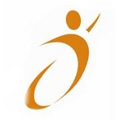 Motion Specialties
Motion Specialties
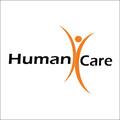 Humancare
Humancare
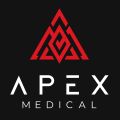 Apex Medical Corporation
Apex Medical Corporation
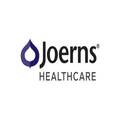 Joerns Healthcare Canada
Joerns Healthcare Canada
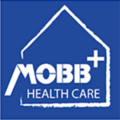 Mobb Home Health Care
Mobb Home Health Care
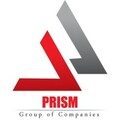 Prism
Prism
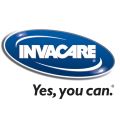 Invacare Canada
Invacare Canada
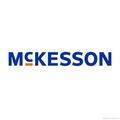 McKesson Medical-Surgical
McKesson Medical-Surgical
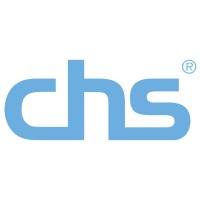 Canadian Hospital Specialties
Canadian Hospital Specialties
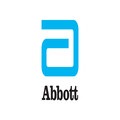 Abbott
Abbott
 Sunrise Medical
Sunrise Medical
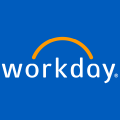 Workday
Workday
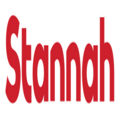 Stannah
Stannah
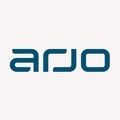 Arjo
Arjo
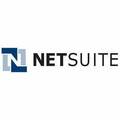 NETSuite
NETSuite
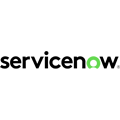 Servicenow
Servicenow
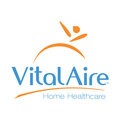 VitalAire Home Healthcare
VitalAire Home Healthcare
 Air Liquide Healthcare
Air Liquide Healthcare
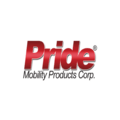 Pride Mobility Products Ltd
Pride Mobility Products Ltd
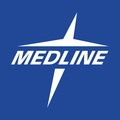 Medline industries
Medline industries
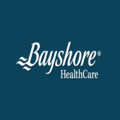 Bayshore Healthcare
Bayshore Healthcare
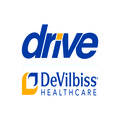 Drive Devilbis Healthcare
Drive Devilbis Healthcare
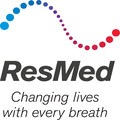 ResMed
ResMed
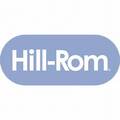 Hill-Rom
Hill-Rom

